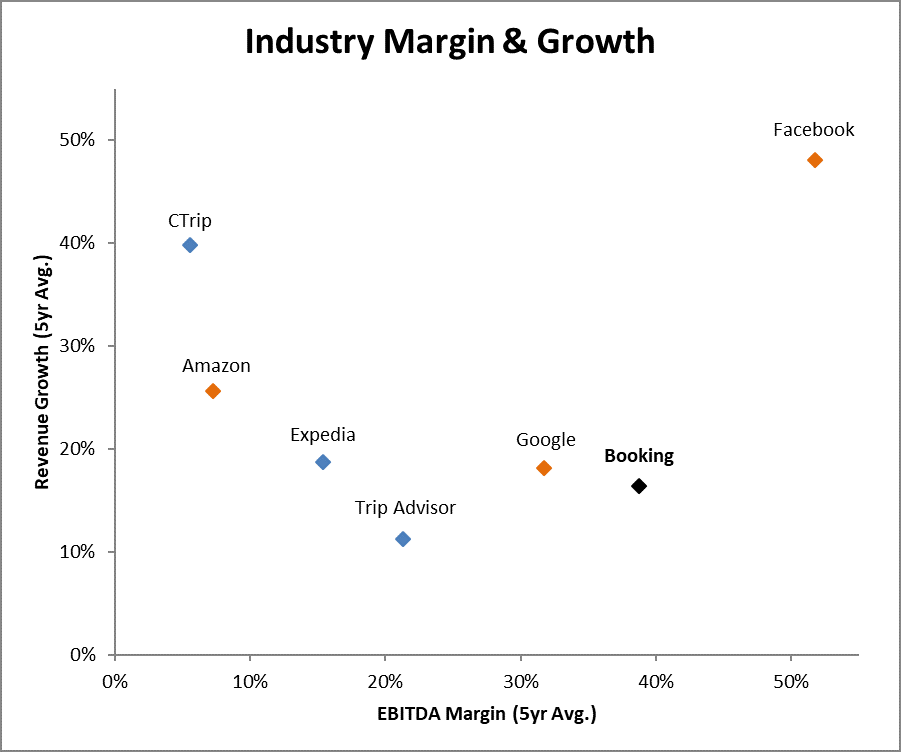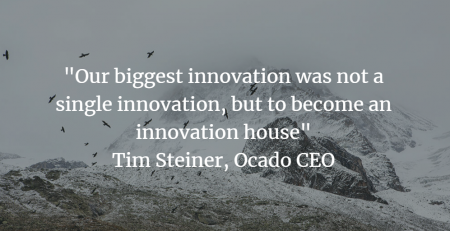Booking Holdings Inc. (BKNG): A Tollbooth on Global Travel Growth
Business Description

Investment Thesis
-
The financial characteristics of the business are fantastic. The balance sheet is pristine with over $4B in net cash and investments, EBITDA margins are just under 40%, and the company is producing more cash than it knows what to do with (buying back 10% of the share base and looking for M&A opportunities).
-
The economic moat is considerable. In some of these network-based moats, if suppliers are large and powerful enough, they can put pressure on a network platform before it gains too much power. Think Disney pulling its content from Netflix or the record labels forcing pricing concessions on Spotify. The main question we must ask ourselves is will the network reach critical mass before that happens? We argue that BKNG has already reached that critical mass where service providers can’t ignore it. This is evidenced by their stable pricing, margins and market share. Travelers naturally gravitate to the platforms offering the most choices and best deals, and suppliers want to go where the travelers are.
-
If that wasn’t enough, BKNG also participates in one of the best secular growth stories around – increased global online travel spending. As global GDP continues to grow, poor countries continue to get richer, and Millennials continue to prioritize experiences over material goods, it hard to see how this trend changes.
Risks
Valuation
Disclosures: This website is for informational purposes only and does not constitute an offer to provide advisory or other services by Globescan in any jurisdiction in which such offer would be unlawful under the securities laws of such jurisdiction. The information contained on this website should not be construed as financial or investment advice on any subject matter and statements contained herein are the opinions of Globescan and are not to be construed as guarantees, warranties or predictions of future events, portfolio allocations, portfolio results, investment returns, or other outcomes. Viewers of this website should not assume that all recommendations will be profitable or that future investment and/or portfolio performance will be profitable or favorable. Globescan expressly disclaims all liability in respect to actions taken based on any or all of the information on this website.
There are links to third-party websites on the internet contained in this web-site. We provide these links because we believe these websites contain information that might be useful, interesting and or helpful to your professional activities. Globescan has no affiliation or agreement with any linked website. The fact that we provide links to these websites does not mean that we endorse the owner or operator of the respective website or any products or services offered through these sites. We cannot and do not review or endorse or approve the information in these websites, nor does Globescan warrant that a linked site will be free of computer viruses or other harmful code that can impact your computer or other web-access device. The linked sites are not under the control of Globescan, and we are not responsible for the contents of any linked site or any link contained in a linked site. By using this web site to search for or link to another site, you agree and understand that such use is at your own risk.






